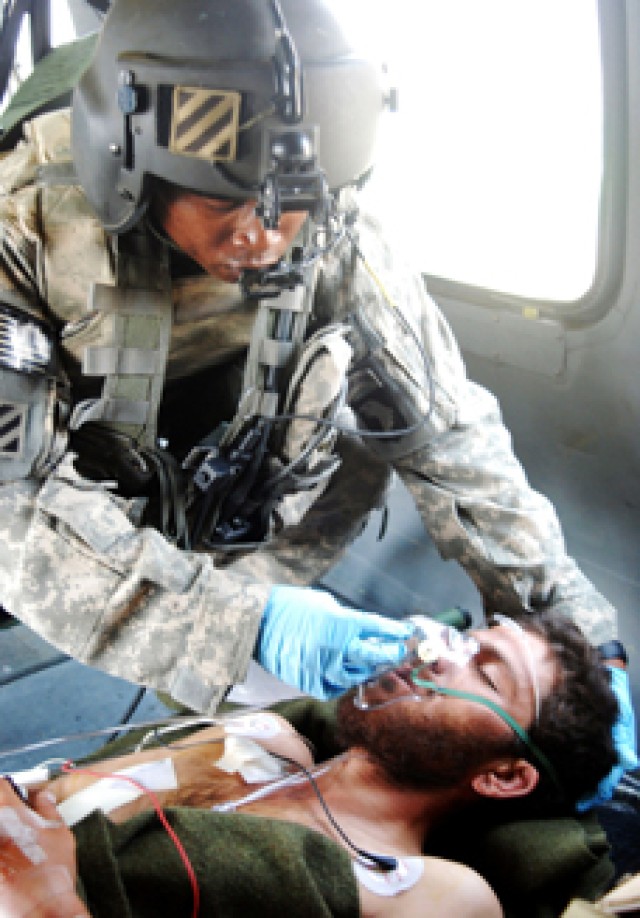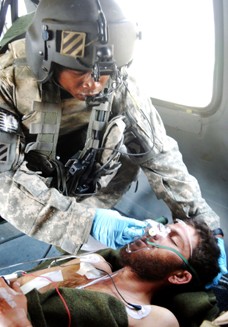Seven Army flight medics assigned to Company C, 2nd General Support Aviation Battalion, 1st Aviation Regiment, received the first Combat Medic Badges awarded to air evacuation crews during a ceremony at Tikrit, Iraq.
The CMB recognizes the unique service and selfless sacrifices of medical personnel while in contact with the enemy or under fire. It previously was awarded to medics who accompanied ground combat units into combat, but now also is presented to medics assigned or attached to aviation units who are present and under fire during combat. The change became effective July 22 and is retroactive to Sept. 18, 2001.
Combat in Iraq has placed MEDEVAC companies' medical personnel into more multiple direct combat situations than any previous American conflict.
"They are willing to go anywhere anytime to do the hard work and it's just impressive," said Col. Jessie O. Farrington, commander of the 1st Infantry Division's Combat Aviation Brigade.
"When they get the call they don't know what they are getting into. All they know is that they are going to save a Soldier's life, or any human being for that matter. These guys are truly angels of mercy," he said.
Both male and female flight medics, previously regarded as strictly medical support personnel, are now drawn into the fight against terror, extending the opportunity to be awarded the CMB.
"It is sort of a thankless job. Most people think all we do is pick-up and drop-off patients and only give us credit for that. We don't get credit for the times when we retrieve patients under fire or treat them while in flight," said Sgt. Ethan Rogers, one of the first recipients.
"It is very special we are finally being recognized for that time when we actually work to save a patient's life," he said.
Organizations of former MEDEVAC personnel have pushed for the extension of the award for years. Some senior Army leaders joined the effort this year.
"Several months ago I was approached by Lt. Col. Michael Tetu, 2-1 commander, and we discussed the need to do something to recognize MEDEVAC flight crews since they did not qualify for the CMB," said Maj. Gen. Mark P. Hertling, commander of Task Force Iron of the 1st Infantry Division in Iraq.
"These air [flight] medics go into some very tough conditions and probably face conditions ten times tougher than medics on the ground. What makes this so special is the fact that these flight crews treat patients in the air and to this day these medics and medics like them have never lost a patient in flight," said Hertling.
During the ceremony Hertling recounted how he wrote a letter to Lt. Gen. Michael D. Rochelle, Army Deputy Chief of Staff G-1, to see if Army regulations could be changed to allow flight medics to receive the CMB.
"This isn't right, we need to do something to change the regulations. We have to do something to get these flight medics the recognition they deserve," Hertling wrote to Rochelle.


Social Sharing